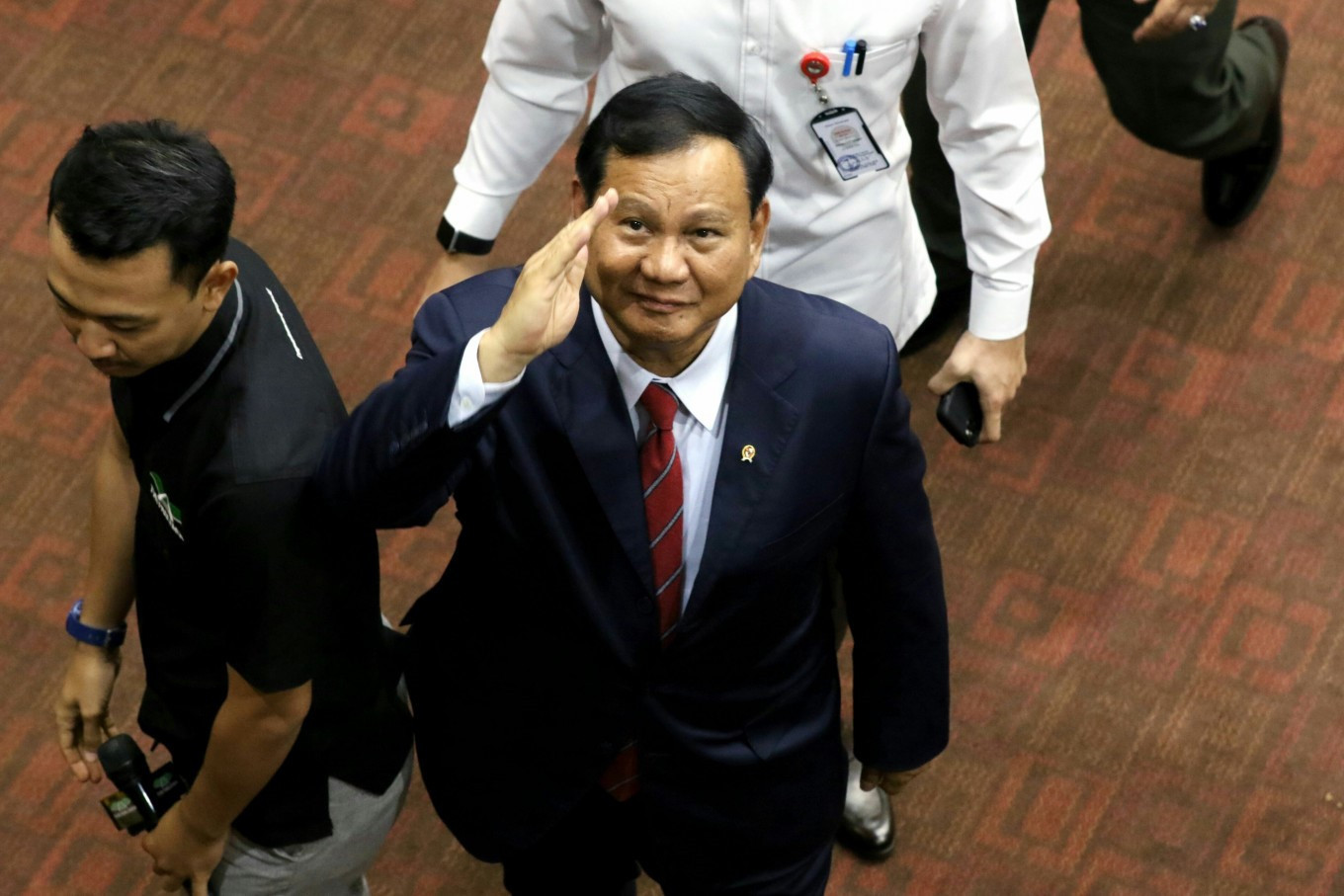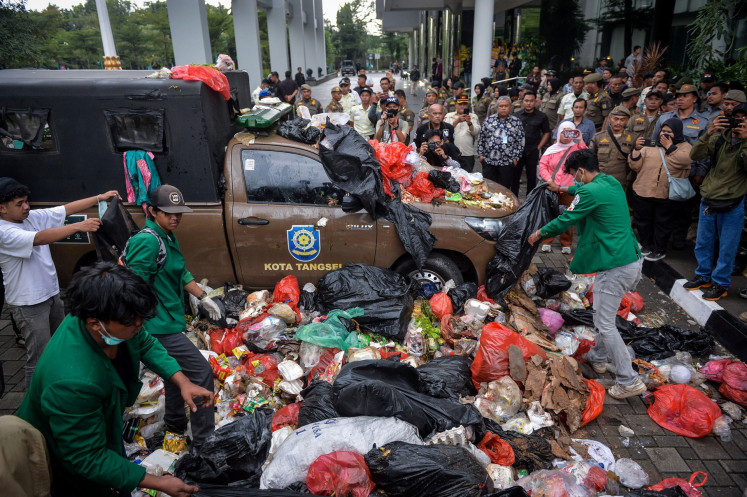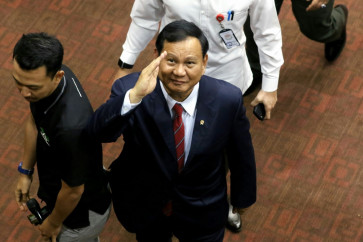Popular Reads
Top Results
Can't find what you're looking for?
View all search resultsPopular Reads
Top Results
Can't find what you're looking for?
View all search resultsAnalysis: Prabowo’s presidential bid gains upper-hand as alliance grows
Change text size
Gift Premium Articles
to Anyone
 Defense Minister Prabowo Subianto attended the inaugural working meeting with the DPR's Commission I at the Senayan Parliament Complex, Jakarta, Monday (11/11/2019). A working meeting between the DPR and the Ministry of Defense (Kemhan) discussed the 2020 Ministry of Defense work plan and its budget support. (JP/Dhoni Setiawan)
Defense Minister Prabowo Subianto attended the inaugural working meeting with the DPR's Commission I at the Senayan Parliament Complex, Jakarta, Monday (11/11/2019). A working meeting between the DPR and the Ministry of Defense (Kemhan) discussed the 2020 Ministry of Defense work plan and its budget support. (JP/Dhoni Setiawan)

The Golkar Party and the National Mandate Party (PAN) have finally decided to ally themselves with the Gerindra Party and the National Awakening Party (PKB) to support Prabowo Subianto in his presidential bid. This makes Prabowo the current presumptive presidential candidate with the biggest political backing, which could translate into a better chance of winning the 2024 race.
After significant back and forth, Golkar, Indonesia’s oldest political party, ultimately put its foot down and chose to back the retired general for the upcoming presidential election. Golkar chairman Airlangga Hartarto, who is also the coordinating economic minister in President Joko “Jokowi” Widodo’s second term in office, said the party believed Prabowo’s leadership was needed to push Indonesia out of the middle-income trap.
PAN’s continued support for Prabowo, on the other hand, is not surprising considering the party’s backing of Prabowo in the 2014 and 2019 elections, both of which he lost to Jokowi.
The four-party alliance has drawn speculation that Jokowi is the one pulling the strings. Apart from rumors that Jokowi prefers his defense minister over the Indonesian Democratic Party of Struggle’s (PDI-P) presidential nominee, Ganjar Pranowo, it is worth noting that Prabowo’s coalition includes four out of the five pro-government parties meant to form the grand alliance raised last April. The United Development Party (PPP) was also part of this so-called grand alliance but has already voiced its support for Ganjar.
Gerindra has already surpassed the presidential threshold of 20 percent of the House of Representatives seats, thanks to its initial partnership with PKB. Combined, the two parties had 22.26 percent of House seats. With Golkar and PAN added to the mix, this figure shot up to 41.41 percent.
A bigger number may not always equal a greater advantage, however. The issue that remains is who will be nominated for the second highest office. With two more political parties to accommodate, Prabowo will certainly have a tough time choosing his running mate.

PKB, understandably, has been eager to nominate its leader Muhaimin “Cak Imin” Iskandar as vice president, while Golkar will likely put Airlangga forward. Meanwhile, PAN is in favor of nominating State-Owned Enterprises (SOEs) Minister Erick Thohir, a popular non-partisan figure who is also a close ally of Jokowi.

















